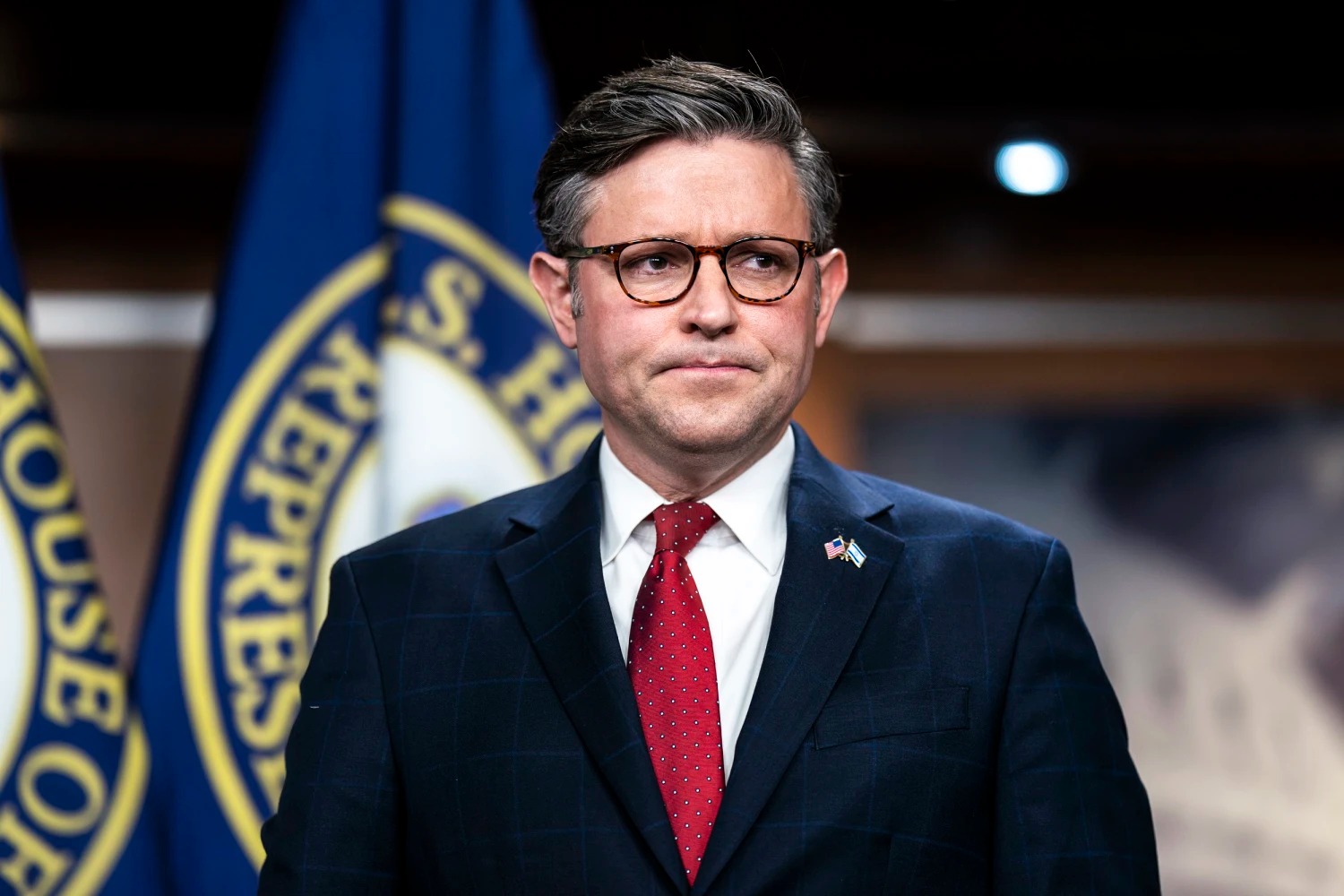As the curtains lifted on the year 2024, House Speaker Mike Johnson found himself ensnared in a web of challenges that unfolded conspicuously. In the wake of notable legislative setbacks, some of which were entirely avoidable,
The New York Times boldly asserted that the Louisiana Republican was grappling with a political quagmire, raising the specter of potential ousting by members of his own party.
A well-informed House Republican, not affiliated with the Freedom Caucus, conveyed growing disquiet within GOP ranks about the speaker’s efficacy during an early January conversation with Punchbowl News.

This source, intimately connected to the dynamics of the House, articulated “significant concerns” among fellow Republicans regarding Johnson’s ability to deliver on legislative priorities.
The unnamed lawmaker further underscored a palpable sentiment that Johnson seemed to be in over his head, grappling with challenges that exceeded his grasp.
Fast forward to the present, and the conditions have deteriorated markedly. In a recent display of discord, House GOP leaders attempted, unsuccessfully, to initiate impeachment proceedings against Homeland Security Secretary Alejandro Mayorkas. Adding to the tumult, a subsequent effort to pass a foreign aid bill met a similar fate, failing just ten minutes after its introduction.
In the aftermath of these legislative setbacks, rather than adopting a posture of introspection, Speaker Johnson opted for a surprising approach – he chose to boast about the House’s purported prowess in managing state affairs.
The Hill, in its coverage, highlighted the speaker’s attempt to project confidence in the chamber’s ability to navigate the intricate landscape of governance.
The evolving narrative surrounding Speaker Johnson’s leadership takes on a more pronounced and precarious hue against the backdrop of recent events.
The failed attempts to impeach a high-ranking official and pass significant legislation expose a leadership vacuum that has not gone unnoticed within GOP circles.
The question of Johnson’s political survival looms larger, with each stumble in the legislative arena adding fuel to the murmurs of discontent among Republican ranks.
The broader implications of this leadership crisis extend beyond mere partisan squabbles. They evoke contemplation on the dynamics of effective governance and the delicate balance required in steering the ship of state.
As the House grapples with its internal challenges, the political landscape is left in a state of flux, with uncertainties about the trajectory of legislative priorities and the future direction of the Republican leadership.


